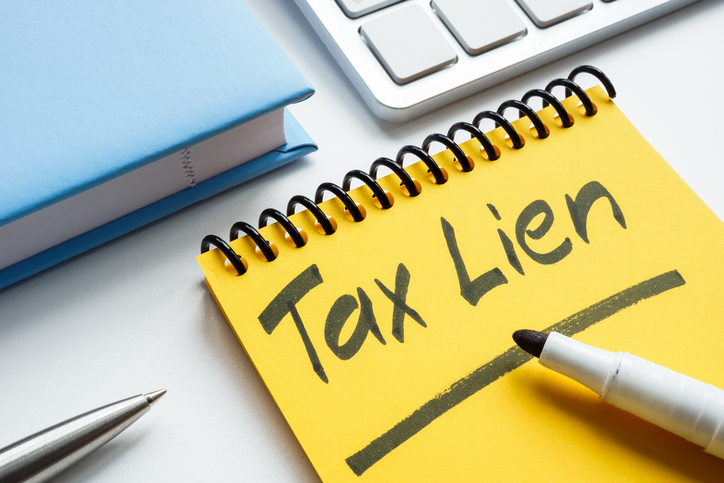Investing in tax liens can be a lucrative opportunity for those looking to diversify their portfolios, and Texas offers a unique landscape for this type of investment. Unlike many states, Texas operates under a tax deed system rather than a tax lien system, which means that when you purchase a tax lien in Texas, you are buying the property itself, subject to a redemption period. This process can be complex, but understanding the basics is crucial for anyone considering this investment strategy. In Texas, properties with delinquent taxes are auctioned off at public sales, and the winning bidder pays the outstanding taxes, penalties, and interest. If the original owner fails to redeem the property within the specified period, the investor gains full ownership.
A financial advisor can help you make investment choices to build wealth and reach long-term goals.
How Tax Lien Investing Works in Texas
When local governments, primarily at the county level, impose tax liens on properties due to unpaid taxes, these liens are then sold to investors at public auctions as a way to recoup the taxes owed. This, in turn, can provide investors with the potential for high returns.
In Texas, tax lien sales occur through public auctions, which are typically held monthly by the county sheriff’s office. Interested investors must first register for the auction, often requiring a refundable deposit. During the auction, liens are sold to the highest bidder, who then pays the amount of the delinquent taxes, along with any accrued interest and fees. The winning bidder receives a tax lien certificate, which entitles them to repayment from the property owner, usually at an attractive interest rate.
One key aspect of tax lien investing in Texas is the redemption period, which is the timeframe during which the property owner can repay the lien and reclaim their property. This period generally lasts two years for most properties, but it can be as short as six months for certain properties, such as those that are non-homesteaded or abandoned. The property owner must repay the lien amount plus a substantial interest rate during this period.
How to Invest in Tax Lien Properties in Texas

There is no set way to invest in tax lien properties other than making sure that you’re able to purchase them and put yourself in a position to find those liens that are for sale. Here are seven steps to put yourself in a good position to buy tax liens in Texas:
- Research: Begin by researching the county tax assessor’s website to understand the local auction process and schedule. Each county has its own rules and auction dates, which you should know before participating.
- Register for auctions: Register for tax lien auctions, which are typically held monthly by county sheriff’s offices. Registration often requires a refundable deposit, and it’s advisable to attend a few auctions as an observer to understand the bidding dynamics.
- Watch online auction platforms: Utilize online auction platforms that many Texas counties use to sell tax liens. These platforms provide access to a broader range of properties and allow for convenient bidding from anywhere.
- Create a bidding strategy: Develop a bidding strategy that includes setting a budget and sticking to it. Be aware of competitive bids and the potential for overbidding, which can diminish returns. Experienced investors often recommend starting with lower-value properties to gain experience.
- Due diligence: Perform thorough due diligence on each property you’re interested in. Research the property’s condition, market value and any additional liens or encumbrances. Verify the accuracy of the lien amount and ensure that the property has the potential for redemption or profitable resale.
- Complete the purchase promptly: If you win a bid, you will need to pay the lien amount plus any accrued interest and fees. Upon payment, you will receive a tax lien certificate, which serves as proof of your investment.
- Monitor the redemption period: Keep track of the redemption period, during which the property owner can repay the lien amount plus interest. In Texas, this period is generally two years for most properties.
Throughout the process, consider consulting with financial advisors, real estate attorneys and experienced investors. Professional guidance can help you navigate complexities, mitigate risks and optimize your investment strategy.
Tips for Tax Lien Investing in Texas
If you plan to invest in tax liens, you’ll need to act quickly and be prepared financially to finalize the purchase if you’re able to strike a deal. Here are four general tips to keep in mind during the process
First, research is key to successful tax lien investing. Start by identifying the properties available for auction and their respective lien amounts. Investigate the property’s condition, market value and any other existing liens or encumbrances.
Second, while online platforms offer convenience, attending auctions in person can provide valuable insights into the bidding process. Observing seasoned investors and understanding the dynamics of live auctions can enhance your bidding strategy. Additionally, attending in person may offer opportunities to network with other investors and gain insider tips.
Third, establish a clear budget before participating in auctions and adhere to it strictly. Overbidding can significantly reduce your potential returns and increase financial risk. By setting a budget, you ensure that your investments remain within manageable limits and align with your financial goals.
Finally, If the property owner fails to redeem the lien, you may need to initiate foreclosure proceedings to take possession of the property. This process can be complex and costly, involving legal fees and potential disputes. Be prepared for this possibility and consider the additional expenses when evaluating the overall investment.
Bottom Line

Buying tax liens in Texas can help you diversify your portfolio and earn attractive returns. The process requires a thorough understanding of local laws, diligent research and strategic planning. Engaging with professionals such as financial advisors and real estate attorneys can further enhance your investment strategy and mitigate risks.
Tips for Investing
- Finding investments for your portfolio can be tough and take a great deal of time. A financial advisor can make all the difference in helping you make investment decisions for your portfolio. Finding a financial advisor doesn’t have to be hard. SmartAsset’s free tool matches you with vetted financial advisors who serve your area, and you can have a free introductory call with your advisor matches to decide which one you feel is right for you. If you’re ready to find an advisor who can help you achieve your financial goals, get started now.
- To see how your own investments might improve your portfolio over time, consider using an investment calculator.
Photo credit: ©iStock.com/designer491, ©iStock.com/small smiles, ©iStock.com/Nansan Houn
